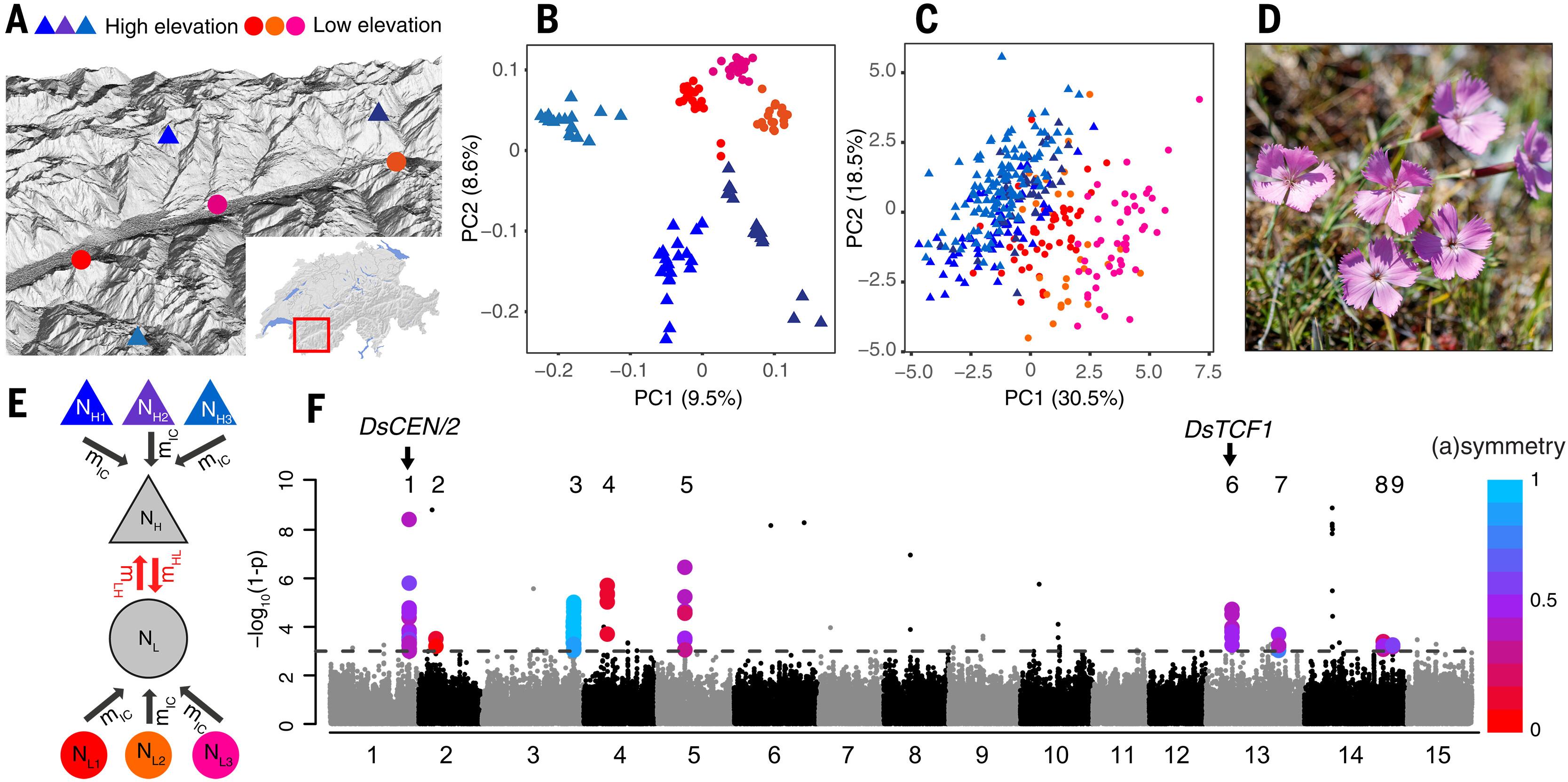Ancient alleles drive contemporary climate adaptation in an alpine plant
IF 45.8
1区 综合性期刊
Q1 MULTIDISCIPLINARY SCIENCES
引用次数: 0
Abstract
Adaptive evolution is key for species to persist in a warming climate. However, how adaptive genetic variants arise and shape both past and future evolutionary trajectories remains largely unknown. In this work, we integrate genomics with functional and ecological assays to unravel the evolutionary history and adaptive potential of alleles governing adaptation to climate through flowering time in an Alpine carnation. We reveal that “warm” and “cold” alleles of the flowering inhibitor CENTRORADIALIS (DsCEN/2) originated through recombination of highly divergent haplotypes during the carnation radiation, implicating ancestral variation in seeding climate-adaptive alleles. These alleles survived in glacial refugia before mediating the species’ range expansion in response to postglacial warming. We predict that, by recapitulating past evolution, warm alleles will continue to facilitate adaptation under future climate change.

古等位基因驱动高山植物的当代气候适应
适应性进化是物种在气候变暖中生存的关键。然而,适应性基因变异是如何产生和塑造过去和未来的进化轨迹的,在很大程度上仍然是未知的。在这项工作中,我们将基因组学与功能和生态分析相结合,揭示了高山康乃馨通过开花时间适应气候的等位基因的进化史和适应潜力。我们发现,开花抑制剂CENTRORADIALIS (DsCEN/2)的“温暖”和“寒冷”等位基因起源于康乃馨辐射期间高度分化的单倍型重组,暗示了种子气候适应等位基因的祖先变异。这些等位基因在冰期后变暖导致物种范围扩大之前,在冰川避难所中存活了下来。我们预测,通过回顾过去的进化,温暖等位基因将继续促进对未来气候变化的适应。
本文章由计算机程序翻译,如有差异,请以英文原文为准。
求助全文
约1分钟内获得全文
求助全文
来源期刊

Science
综合性期刊-综合性期刊
CiteScore
61.10
自引率
0.90%
发文量
0
审稿时长
2.1 months
期刊介绍:
Science is a leading outlet for scientific news, commentary, and cutting-edge research. Through its print and online incarnations, Science reaches an estimated worldwide readership of more than one million. Science’s authorship is global too, and its articles consistently rank among the world's most cited research.
Science serves as a forum for discussion of important issues related to the advancement of science by publishing material on which a consensus has been reached as well as including the presentation of minority or conflicting points of view. Accordingly, all articles published in Science—including editorials, news and comment, and book reviews—are signed and reflect the individual views of the authors and not official points of view adopted by AAAS or the institutions with which the authors are affiliated.
Science seeks to publish those papers that are most influential in their fields or across fields and that will significantly advance scientific understanding. Selected papers should present novel and broadly important data, syntheses, or concepts. They should merit recognition by the wider scientific community and general public provided by publication in Science, beyond that provided by specialty journals. Science welcomes submissions from all fields of science and from any source. The editors are committed to the prompt evaluation and publication of submitted papers while upholding high standards that support reproducibility of published research. Science is published weekly; selected papers are published online ahead of print.
 求助内容:
求助内容: 应助结果提醒方式:
应助结果提醒方式:


